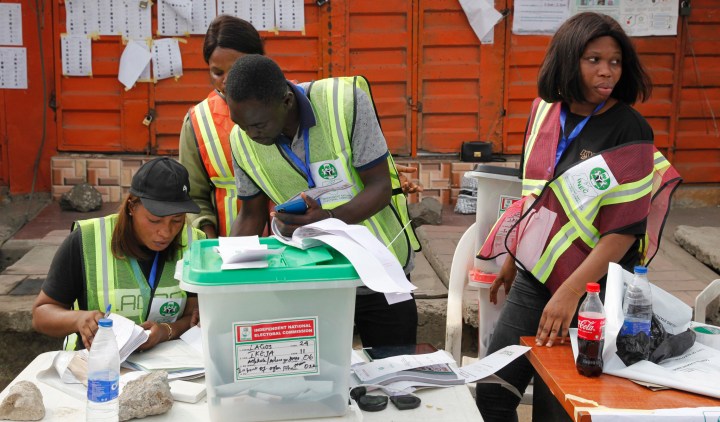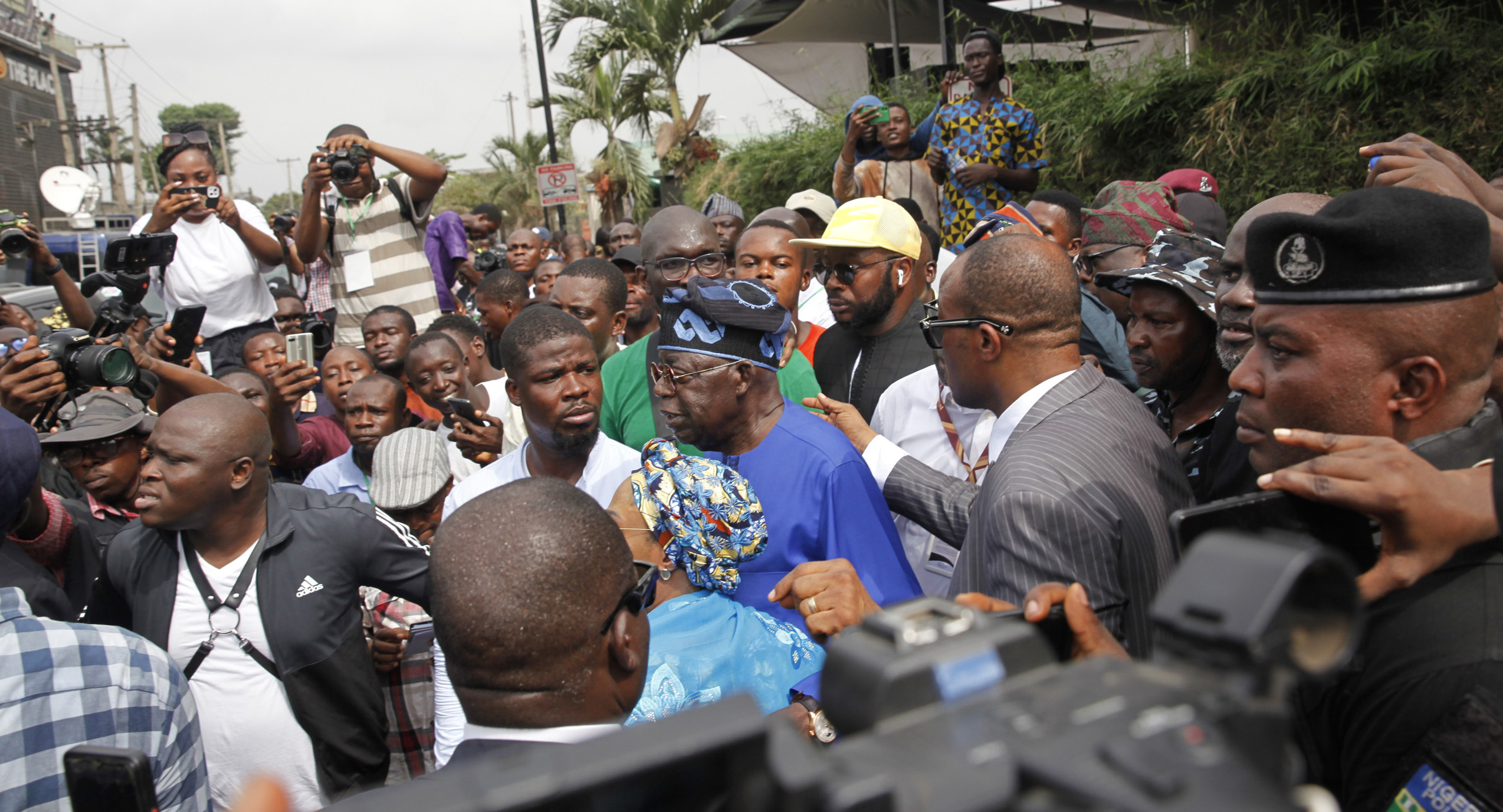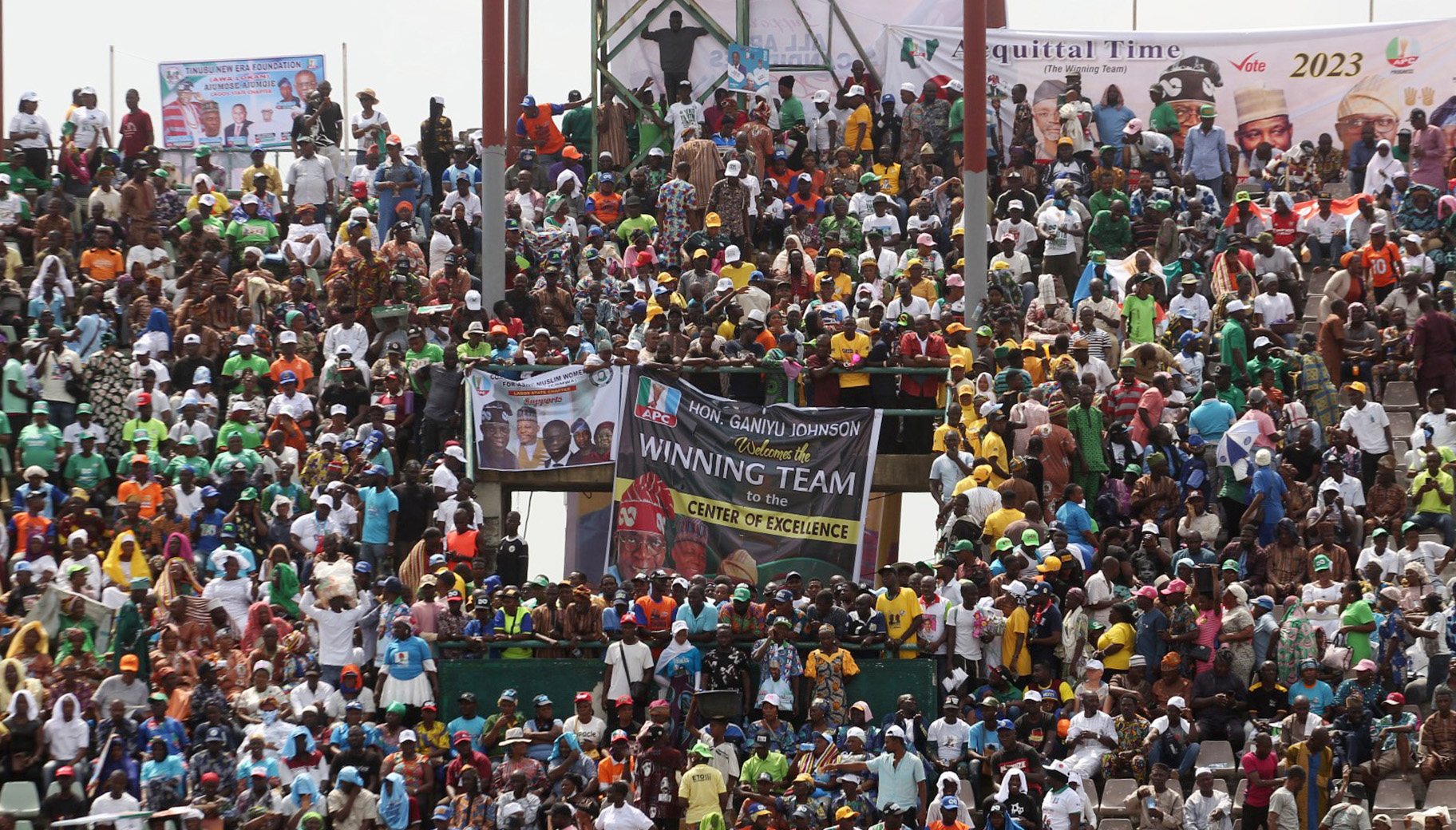NIGERIAN ELECTION OP-ED
Nigeria’s 2023 elections fail to deliver the promised hope – it’s a tale of déjà vu

The allegations that results were doctored by politicians, that election agents were held at gunpoint to change results, and widespread reported failures by the Independent National Electoral Commission (Inec), all culminate in what has been described by many as the worst Nigerian election in decades.
The zero-sum nature of Nigerian elections has once again come to the fore as a major bane of the 2023 electoral process when Nigerians were expectant of positive changes in Nigeria’s quest for democratic consolidation, more than two decades after the first post-military transition in the country.
A “zero-sum” electoral process is a situation whereby the winner takes all in an election. The Nigerian political system is one created in the image of the American presidential system of government, barring the consistent use of the electoral college.
This implies that the system is set up to recognise only one real winner or victor after an election – the rest of the participants become losers and have to wait for another opportunity to unseat the incumbent in the next election cycle, usually four years. This zero-sum system ensures that there is largely no middle ground or a situation in which there is a potential for real relevance for the losers. This accounts for the figurative and almost literal “fight-to-the-death” syndrome in Nigerian politics.
After an eight-year period of the All Progressives Congress (APC)-led government in Nigeria in which widespread poverty, insecurity and dissatisfaction were highlighted as major failures of governance, Nigerians looked forward to the 2023 elections as another opportunity to rewrite and reshape the future or possibly retake their country through the polls.

All Progressives Congress presidential candidate Bola Ahmed Tinubu (centre), makes his way through the crowd after casting his vote during the general elections in the Ikeja district of Lagos, Nigeria, on 25 February 2023. (Photo: EPA-EFE / Akintunde Akinleye)
This mindset was further boosted by the signing into law – by the president – of the new electoral act in addition to his promise to ensure that he leaves a legacy of free and fair elections at all levels during the 2023 general elections.
One important component of this promise was the introduction of an electronic system for capturing results and transmitting them to an online portal, thus improving transparency in the process. These, together, raised the hopes of many Nigerians about the possibility of seeing their votes count for a change, especially with the rise of a strong political third force, the Labour Party candidate, Peter Obi.
The 2023 elections comprising the presidential, gubernatorial, and national and state houses of assemblies have been held, respectively. The frontrunners of the presidential elections were the APC and the Peoples’ Democratic Party (PDP), represented by Asiwaju Bola Ahmed Tinubu and Atiku Abubakar respectively.
Third force
For the first time since 1999, a third force also emerged through the Labour Party represented by Obi (and his obedient movement). There were also other parties that participated during these polls.
The election has been described by different observers in varying forms from “peaceful and promising”, to “controversial” and a “failed opportunity”, depending on the commentator.
From a citizens’ outlook, there were sentiments of optimism and determination prior to the elections which culminated in what was widely described as a high election turnout and enthusiasm, especially among the youthful population.
This enthusiasm was however met with the Independent National Electoral Commission’s (Inec) supposed dysfunctionality and unpreparedness which culminated in situations of perceived disenfranchisement of people.
International observer missions like the Joint Election Observation Mission comprised of the International Republican Institute and the National Democratic Institute (NDI) expressed concerns regarding different scenarios that represented elements of voter suppression, violence, vote buying and Inec inadequacies.
Visit Daily Maverick’s home page for more news, analysis and investigations
Some of the identified pitfalls of these elections – national and state levels respectively – included the failure of the Inec to deliver on its promise of seamless services using technologies like the bimodal voters accreditation system and the iReV online result viewing portal. From the late arrival of materials down to the failure to record and transmit results from the polling units onto the iReV, Inec undermined public trust in polling results.

Supporters of Nigeria’s ruling All Progressives Congress attend a political rally in Lagos, Nigeria, on 26 November 2022. (Photo: EPA-EFE / Akintunde Akinleye)
This culminated in widespread outcry, outrage, and loss of legitimacy for the Inec especially in terms of the outcome of the presidential election, thus leading to the current dispute by the losers. This scenario possibly culminated in the low voter turnout and apathy witnessed during the gubernatorial elections that were just finalised over the past weekend.
The next pitfall relates to the instrumentalisation of disorder and violence by political forces in the form of destruction of polling stations, intimidation of voters, and the resort to violence in some locations.
These characterised both the national and state levels and contributed to large-scale disenfranchisement as many people who voted saw their ballots destroyed and others were unable to vote despite braving adverse weather conditions and the ongoing cash crisis in their quest to vote during the elections and make a difference through their votes.
Rigging alleged
The third pitfall was the widespread rigging alleged on many fronts and captured in many social media posts owing to the failure or dysfunctionality of the Inec.
The allegations that results were doctored by politicians, that election agents were held at gunpoint to change results to favour specific candidates or political parties, and that the Inec vehemently refused to abide by its own guidelines for the uploading of election results and also refused to halt the process of announcing these results before they were uploaded – all culminate in what has been described by many as the worst election in decades.
Finally, the pitfalls highlighted above can be traced back to an electoral system where the winner takes all and the losers are left with no soft landing. This inherently makes the electoral process a do-or-die affair for the parties/candidates involved.
Thus, winning at all costs becomes the unspoken rule of the electoral “game” with little to no consequence or accountability.
Perhaps, a lesson or two can be drawn from proportional representation electoral system where parties are represented in the national assembly in proportion to their electoral support, as in South Africa.
If there is an understanding that competitors in the electoral processes stand a chance to benefit (despite losing the top spot), this would be useful in incentivising a reduction in violence and chaos during elections. The cost incurred in electoral violence could potentially be offset by relative gains to electoral processes, thereby reducing the propensity for violence.
Ultimately, there is a need to rethink and revisit the Nigerian electoral process or else elections will recurrently be a tale of a déjà vu characterised by violence, chaos, vote-buying and rigging, thereby keeping international observers, global security watchmen and apparata in business. DM
Dr Ekeminiabasi Eyita-Okon is a lecturer at the Wits School of Governance (WSG) and Dr Kingsley Orievulu is Research Associate at the Africa Health Institute (AHRI) and Research Fellow, Centre for Africa-China Studies (CACS).



















 Become an Insider
Become an Insider
Comments - Please login in order to comment.